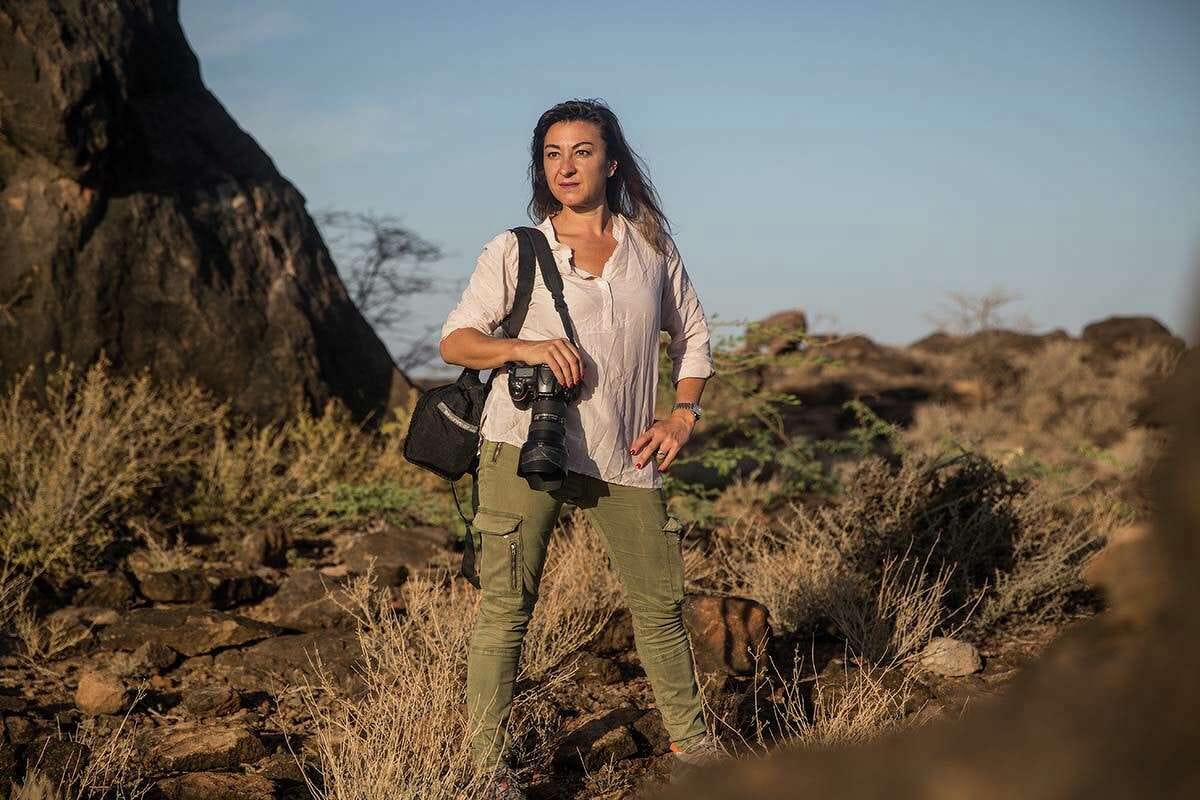Why Activism Isn't Enough to Change the World
There is no one way to advocate for meaningful change.
I’ve been thinking a lot about the significance of activism in the last few weeks.
For many of the Twitter “activists” we see on a weekly basis, here’s how the hype cycle of tragedy goes: They have an opinion, they share said opinion on social media, they sign a petition or donate money to the cause they support, and then suddenly that anger and fire and outrage goes *poof* and disappears overnight.
Each day, we open our phones and navigate a flood of useless opinions paired with very little action. As I’ve researched and studied hundreds of people through The Profile, the ones I’m most inspired by are those who understand that there is no one way to advocate for meaningful change. Those people do the work day in and day out to address the problem at the root, not opine about it on the internet.
I’ve recently discovered the work of war photojournalist Lynsey Addario. Over the past 15 years, Addario has covered every major conflict and humanitarian crisis on the planet including ones in Ukraine, Afghanistan, Iraq, Darfur, Lybia, Syria, Lebanon, South Sudan, and Somalia.
Although her work often spurs change, Addario is clear: She is not an activist. “I cover certain stories for a reason because I believe that if the public has access to the scenes that I’m seeing, they will have a visceral reaction,” she says. “I’m not an activist, but I am certainly a very active journalist, and I cover things that will hopefully open people’s eyes and educate people.”
She understands that a powerful photograph can make you feel emotion. It can move you not just emotionally — it can move you to act.
For instance, Addario went to a province in Sierra Leone where many women were dying during childbirth. One in 23 women faced a lifetime risk of maternal death, which was the highest in the world.
In 2010, Addario documented the tragic story of one woman’s journey from pregnancy to death, and her photographs captured the dire situation at play. Two years later, she received a call from Doctors Without Borders who told her they saw her work and they sent five ambulances, offered 24-hour obstetric emergency services, and equipped each small clinic in the villages with a radio.
Thanks to Addario’s story and Doctors Without Borders’ work, the maternal mortality rate was reduced by 60% in two years. Her work had an incredible, tangible impact that literally saved lives.
What I’ve noticed is people who are able to spur meaningful change don’t just do the work, they live it. They incorporate it into their professions, they align their actions to be consistent with their beliefs, and they create a model for others.
I’ll never forget how surprised I was when I learned about Dolly Parton’s philanthropic efforts. As the fourth of 12 siblings, Parton and her family lived in a tiny, one-bedroom log cabin in Sevierville, Tenn. She grew up with no electricity or running water.
Her dad didn't know how to read or write, and he carried great shame about it his entire life. One day, Parton told him: "Daddy, there are probably millions of people in the world who don’t know how to read or write, who didn’t get the opportunity. Don’t be ashamed of that, instead, let’s go do something special.”
That something special became Parton's Imagination Library, an organization she started in 1995 for the children within her home county. Today, her program spans five countries and gifts over 1 million free books each month to children around the world. In total, she has donated more than 140 million books to date. Again, tangible impact that addresses the root problem in many impoverished areas and gives kids exposure to books, ideas, and new ways of life.
And even though you probably won't see Parton in women's rights marches, it doesn't make her any less of a proponent for equal rights. “I still believe that women should get paid equal and should be treated with respect," she says. "I don’t have to preach. I write it. I sing it. I live it. If I’m not a good example of a woman in power, I don’t know who is."
In other words, there is no one way to advocate for meaningful change. While some people like to preach about it on the internet, others let their actions speak for themselves.
Remember, it takes more than a tweet to make a long-lasting difference.
It takes consistent learning paired with individual action. Few are willing to do the work, but those who are will change the world.


